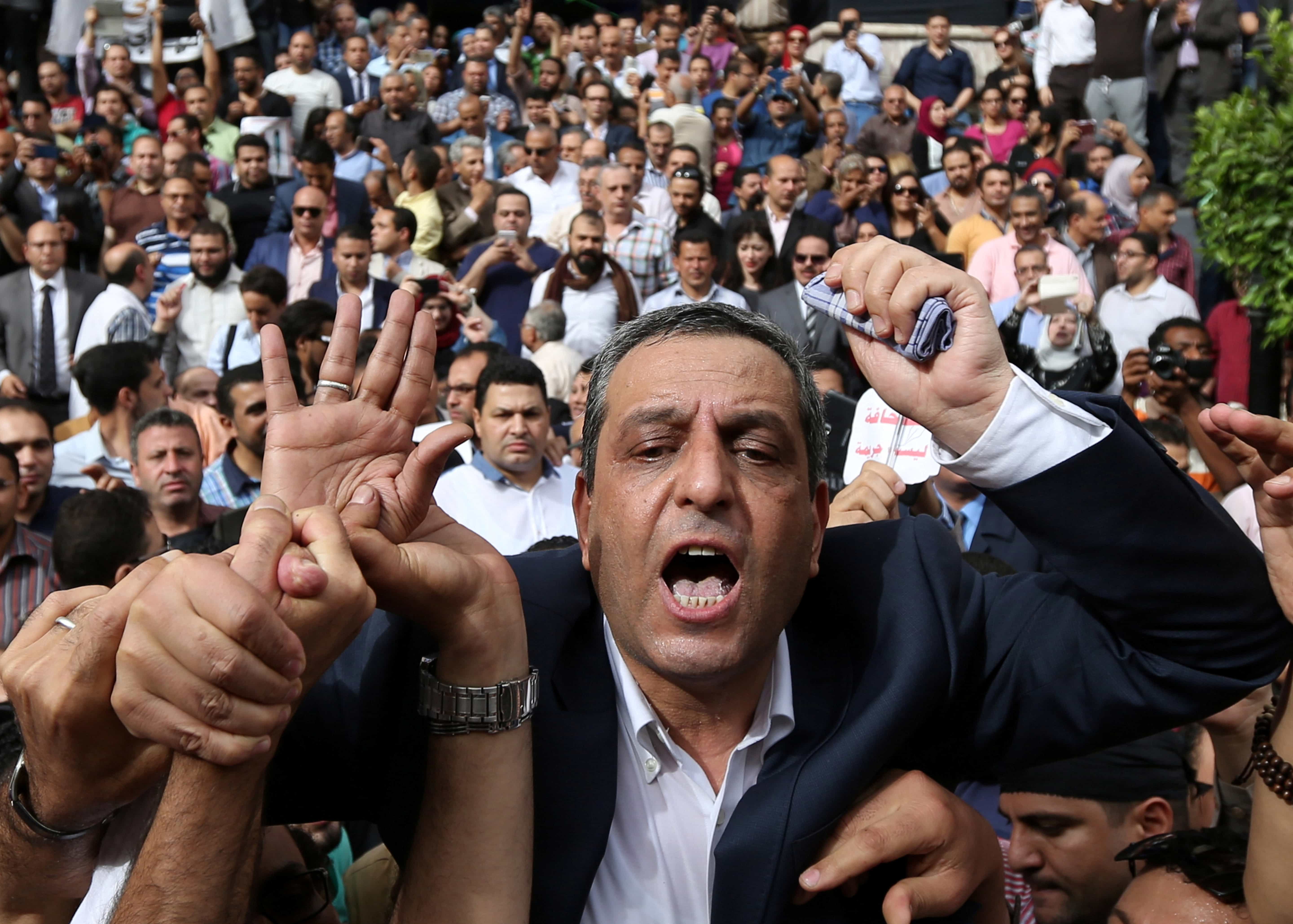After two years of prosecuting journalists for everything, from “spreading false news” to “participating in a gathering”, Egypt is now taking aim at a new target in its fight against dissent.
Over the past two years under the regime of President Abdel Fattah el-Sisi, journalists working in Egypt have been slapped with spurious charges ranging from “spreading false news”, “participating in a gathering”, “quoting unofficial sources” and “plotting unrest”, to “attempted murder”.
On 19 November 2016, Egypt went a step further in its persecution of journalists. It sentenced Yahya Qalash, president of the Egyptian Press Syndicate, Gamal Abd El-Raheem, its secretary-general, and Khaled El-Bashy, head of its freedoms committee, to two years in prison on charges of “harbouring a fugitive”.
The men were arrested on 29 May 2016 and accused of harbouring two journalists who staged a sit-in inside the union’s headquarters and were arrested when police stormed it on 1 May. In other words, Qalash, El-Bashy, and El-Raheem were carrying out their mandate of protecting union members.
“The situation of journalists in Egypt is not improving,” said Alexandra El Khazen, the head of Reporters Without Borders’ Middle East desk. “These unprecedented prison sentences for key figures in the Journalists Syndicate suggest an ever darker future for the media in this country.
In a statement on news of their arrest, the Arabic Network for Human Rights Information (ANHRI) warned against increased repression within Egypt. “The climate of freedoms in Egypt, particularly freedom of the press, is shrinking every day. The Egyptian authorities’ intent to silence anyone who dares to criticize them has become clear.”
“The authorities are punishing Yehia Qallash, Khaled al-Balshy, and Gamal Abdel Rahim, who represent the most influential voice for press freedom in Egypt, for working to protect journalists from harassment, threats, and arrests,” said CPJ Middle East and North Africa Program Coordinator Sherif Mansour from Washington, D.C.
Other Egyptian organisations including the Cairo Institute for Human Rights (CIHRS) and the Association for Freedom of Thought and Expression (AFTE) published a joint statement noting that “this unprecedented escalation should not be seen in isolation from the fierce attack on freedom of opinion and expression in general and press freedom and the media in particular.”
Egypt’s targeting of such prominent figures in the press has also prompted twelve Arab press freedom and human rights groups to join voices in denouncing the sentences and calling for charges to be dropped. “We express our complete solidarity with Egyptian journalists and their union in the face of a ruling so harsh,” the statement read. “We call on the judiciary to review its decision so as transform the Egyptian judicial system into just another tool of punishment in the hands of the authorities.”
The Press Syndicate’s board of directors are appealing the decision. According to RSF, the court has allowed them to stay out of jail pending the outcome of the appeal on bail of 10,000 Egyptian pounds (530 euros). The first appeal hearing has been scheduled for 25 December.



